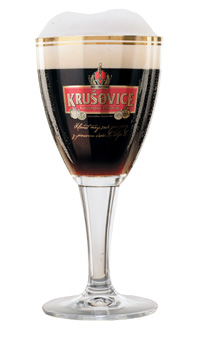Heineken acquires Krusovice Brewery
Germany’s Radeberger Group sells its Czech Brewery to Heineken expecting that the Czech premium brand Krusovice will benefit from Heineken’s global marketing and distribution expertise.
In June Heineken announced the acquisition of Krusovice Brewery in the Czech Republic from Radeberger Group. As a result of this transaction, the market share of Heineken in the Czech Republic will increase to 8 percent, with total volumes of over 1.6 million hl beer, taking Heineken to number three position in the market.
The transaction, which Heineken will fund from existing cash resources, is expected to be earnings enhancing in 2008 and value enhancing in 2010. The proposed acquisition will be submitted to the relevant competition authorities and is expected to be completed by 1 September 2007.
Under the terms of the transaction, the acquisition price is not disclosed.
The Royal Brewery of Krusovice was founded in 1517, is situated around 70 km west of Prague and employs 300 staff. In 1994 it was bought by the Binding Brewery (owned by Germany’s Oetker concern) which has since been integrated into the Radeberger Group. Binding spent millions on kitting out Krusovice with state-of-the-art equipment which turned the venture non-profitable for many years. In 2006 it sold 700.000 hl of beer according to Radeberger Group and had a market share of 3 percent.
The brewery has a portfolio in the premium segment of the market, with the main Krusovice brand, one of the oldest Czech beer brands, and five variants, Svetle, Musketyr, Imperial, Cerne and Jubilejní. Heineken claims that the Krusovice Brewery is profitable.
In its statement Radeberger maintains that the reason for the sale of Krusovice was that the brand would do better if an international brewer took it under its wings, so to speak, than if it had remained with Radeberger whose main (and now only market) is the domestic German market, where it is nevertheless the market leader.
Now why does this argument not seem convincing? Some will probably remember the euphoria at Munich’s Paulaner Brewery when its owner, the Schörghuber Group, announced its joint venture with Heineken in 2001. The then management of Paulaner excitedly told the press that Heineken would take the Paulaner wheat beer brand into its portfolio of international brands and roll it out globally. Err, what’s become of that vision? Very little, actually. Certainly nothing in the scale of “global” as Heineken’s main interest in the joint venture was Schörghuber’s investment in CCU in Chile. Not only does CCU dominate the Chilean beer industry with a market share of 89 percent, it is also rather profitable. And the Paulaner wheat beer brand? Well, in 2001 it was doing 1.2 million hl and in 2006 1.3 million hl.
Heineken has already made it clear that it will seek export opportunities for Krusovice - but not in western Europe or in the U.S. (who needs another Czech beer brand there?) but further east. Nico Nusmeier, Regional President Central and Eastern Europe of Heineken, commented: “This acquisition strengthens our base and provides a strong opportunity to accelerate top-line growth in the Czech market. The Krusovice brand is very popular among local consumers and we are confident that with appropriate commercial investment, this brand has clear potential to grow. In addition, we plan to further extend the excellent export position of the Krusovice brand by leveraging the reputation of Czech beers, particularly in central and eastern Europe. The brewery’s proximity to the city of Prague represents potential to further grow the Heineken brand.”
Heineken currently owns Starobrno Brewery in the Czech Republic, with production facilities in Brno and Znojmo in the South Moravia region. The brewery brews Starobrno, Hostan and Zlaty Bazant brands and imports Heineken. The brewery has a domestic market share of more than 5 percent, says Heineken. The market is dominated by SABMiller, whose Pilsner Urquell Group has a 48 percent share. InBev is number two with Staropramen controlling a 14 percent market share.
The Czech beer market has been stable for years. Annual consumption is currently estimated at 16 million hl beer. In 2006, Czech per capita consumption was 159 litres per year, the highest in the world.

